If you’ve ever pondered what food safety experts eschew from their diets, this list sheds light on common foods they steer clear of. Such choices often stem from concerns over contamination, improper handling, or inherent risks.
Where most would indulge, these experts exercise caution to ensure their well-being.
Discover which everyday items make the list!
1. Raw Sprouts
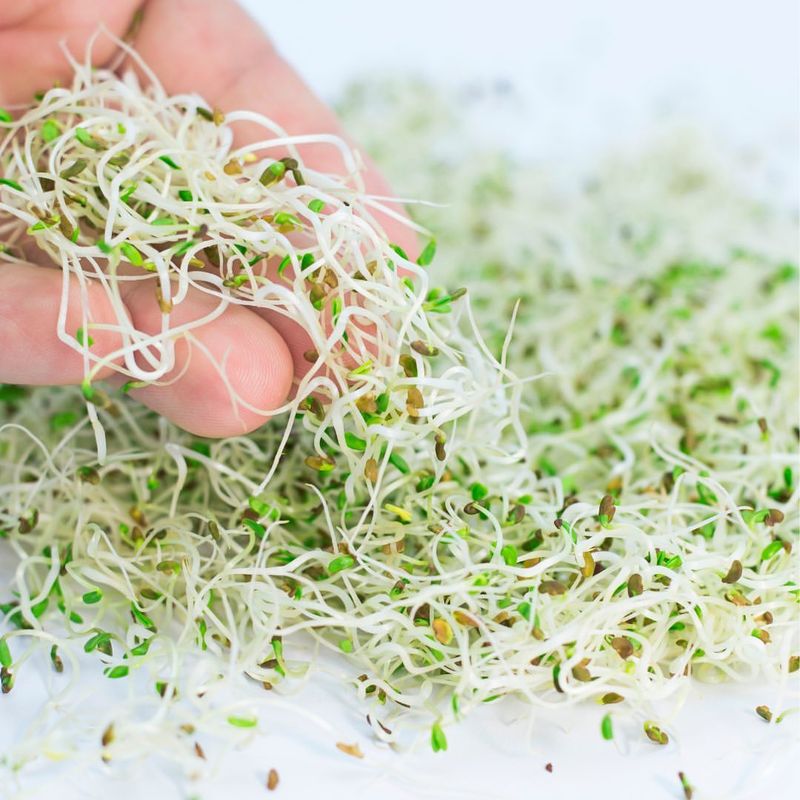
If you’ve considered adding raw sprouts to salads, think again. Their moist growing environment fosters bacterial growth.
How can one ensure safety when the risk of E. coli looms large? Cooking sprouts can mitigate this risk, offering a safer alternative.
2. Undercooked Eggs

How often do we savor a sunny-side-up egg? However, food safety experts remain wary of undercooked eggs due to the salmonella risk.
Though cooking eggs until both whites and yolks firm up significantly reduces this threat, choosing pasteurized eggs is another safeguard.
3. Raw Shellfish
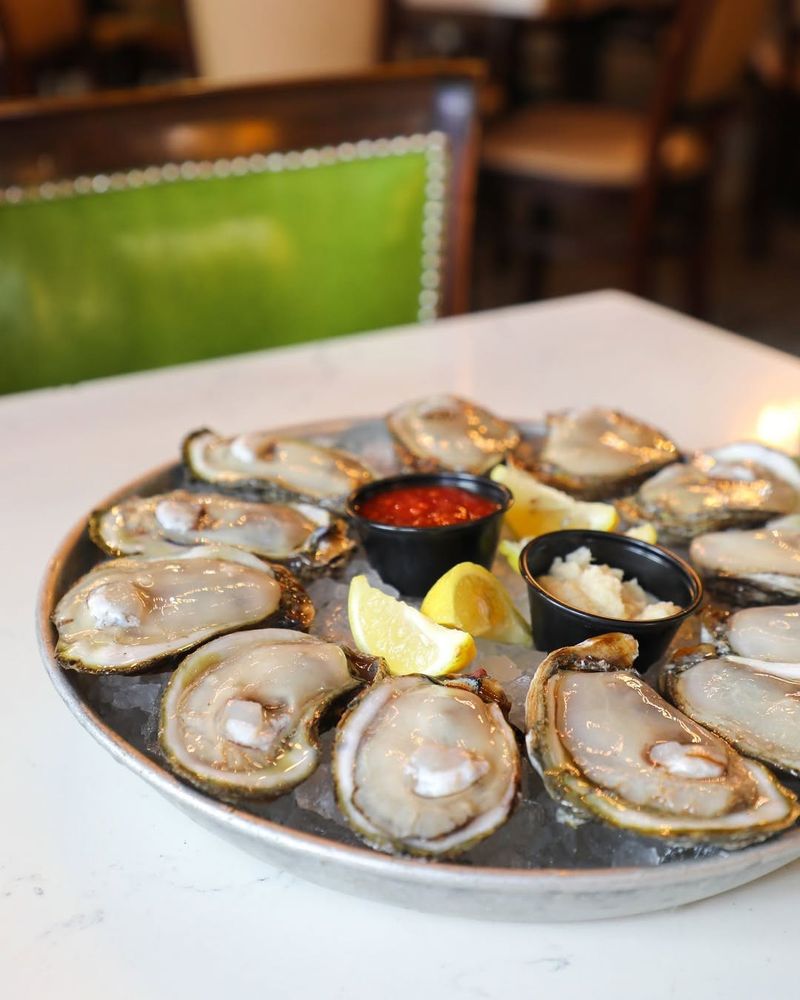
Though raw shellfish might tempt seafood lovers, they pose significant risks. Vibrio bacteria thrive in raw oysters, leading to severe illnesses.
If you’re considering indulging, remember that cooking can neutralize these hazards. Hence, most food safety experts avoid raw shellfish, preferring their cooked counterparts.
4. Unpasteurized Milk

Where some might appreciate the creamy taste of unpasteurized milk, it carries risks of harmful pathogens like listeria.
Pasteurization significantly lowers these dangers. How does one balance taste with safety? Experts often favor pasteurized options, steering clear of raw milk due to its potential health hazards.
5. Pre-Packaged Salads
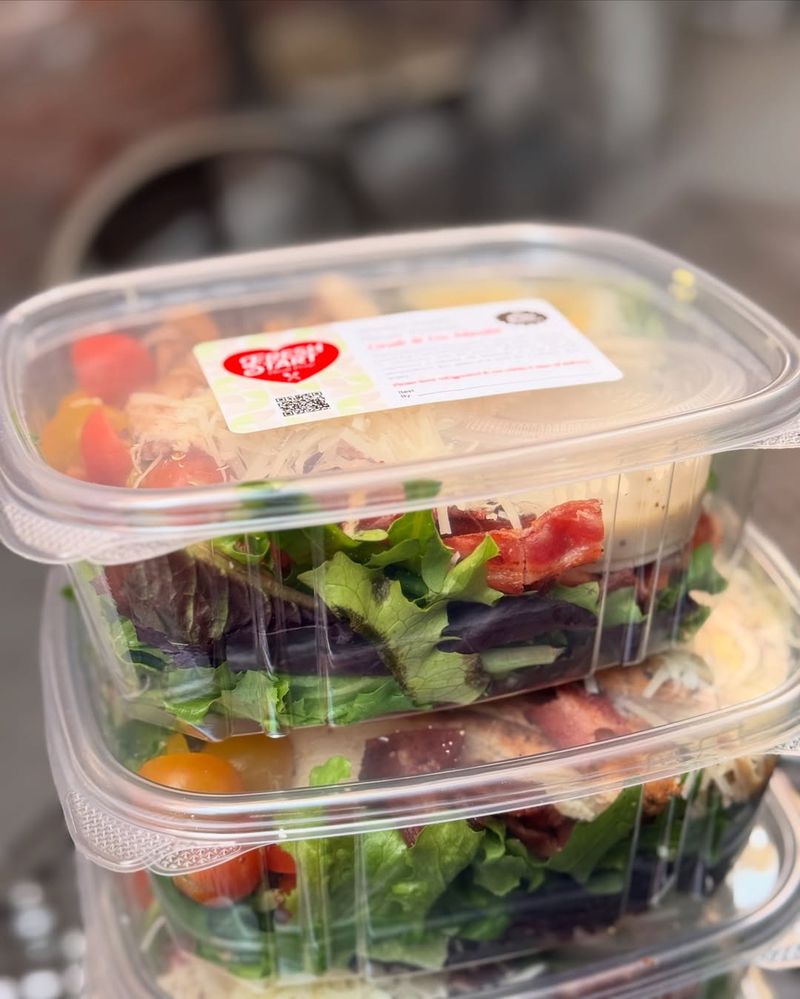
Pre-packaged salads might seem convenient, yet they harbor risks. If not stored correctly, they can become breeding grounds for bacteria.
Where one might skip washing, ensuring cleanliness becomes crucial. Though they save time, experts prefer fresh greens washed thoroughly at home. Questioning convenience over safety, they often bypass pre-packaged options.
6. Rare Burgers

Rare burgers lure with their juicy appeal, but the risk of E. coli in ground beef is real. Cooking meat thoroughly eradicates this threat, ensuring flavorful yet safe enjoyment.
Experts suggest cooking burgers until no pink remains. Where flavor meets caution, well-cooked burgers become the preferred choice..
7. Raw Cashews

Raw cashews might seem harmless, but in reality, they contain a toxic compound called urushiol. Cooking or steaming neutralizes this toxin.
Where one might assume safety, awareness becomes crucial. Food safety experts favor processed cashews, avoiding the raw variety.
8. Freshly Squeezed Juice
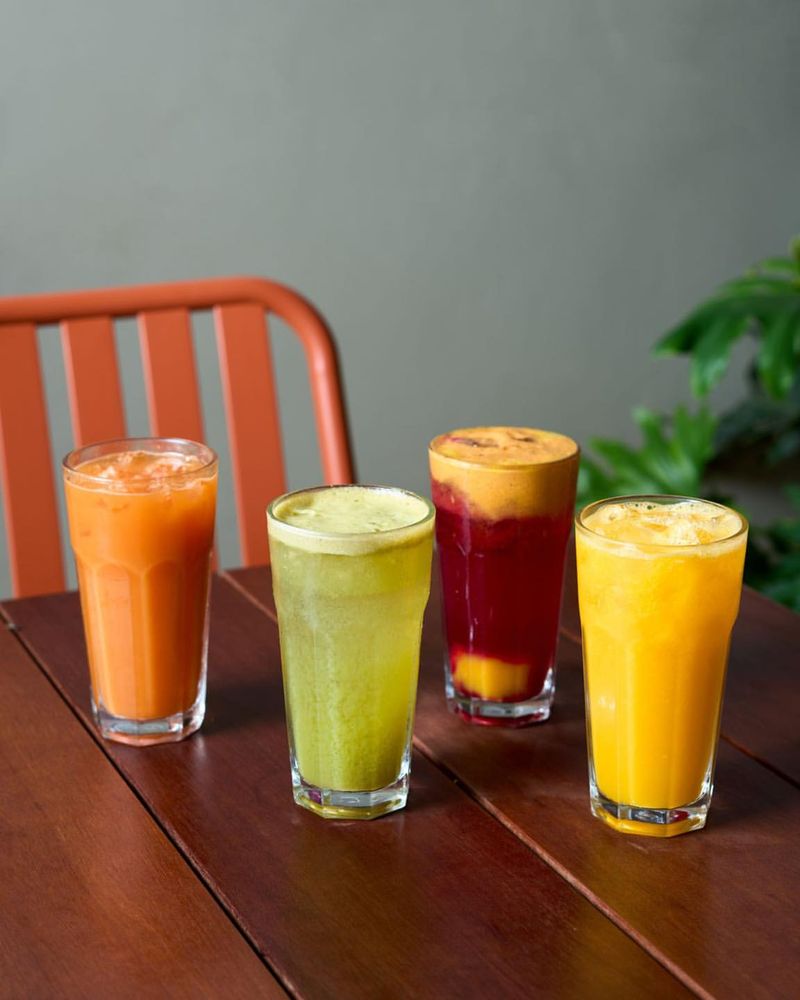
If you love freshly squeezed juice, consider potential risks. Unpasteurized juices can harbor pathogens.
Though homemade juice may seem pure, contamination is possible. Food safety experts often choose pasteurized options, ensuring safety without sacrificing taste.
9. Buffet Foods
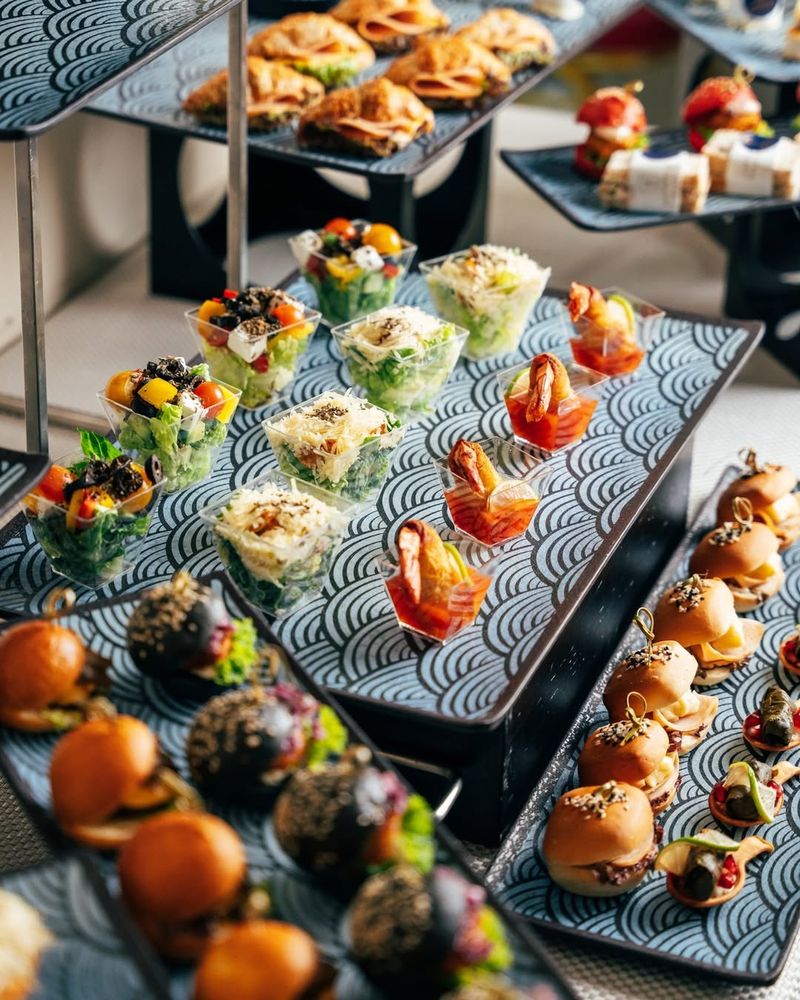
Buffets might entice with variety, yet food left out for extended periods poses risks. If temperatures aren’t maintained, bacteria thrive.
How can one ensure safety amid such variety? Experts prefer freshly prepared meals to buffet options. Though buffets offer abundance, they often skip them in favor of safer alternatives.
10. Canned Foods With Dents
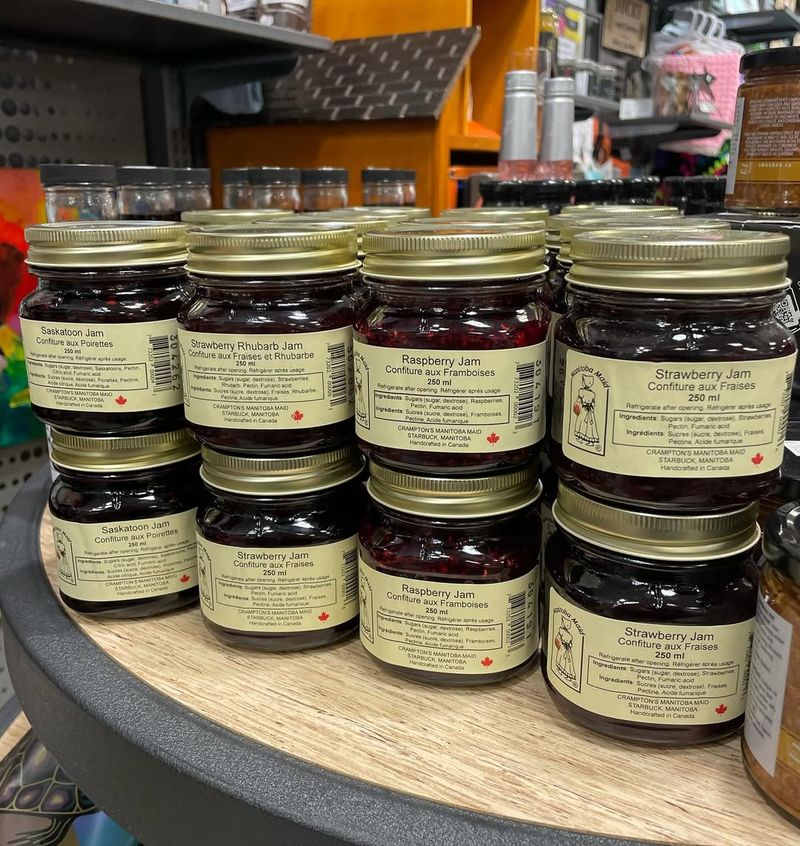
Dents in canned foods are more than cosmetic defects; they compromise safety. Where one might overlook a dent, it could signify bacterial contamination, like botulism.
If safety takes precedence, inspecting cans for dents becomes crucial. However, experts teach vigilance, often opting for undented cans.
11. Homemade Mayonnaise

Homemade mayonnaise might seem delightful, yet raw eggs pose salmonella risks. Pasteurized eggs can mitigate this danger, yet experts often prefer store-bought versions.
If you’re tempted to whip up a batch, consider pasteurization for safety. Where flavor meets caution, store-bought alternatives provide peace of mind.
12. Unrefrigerated Leftovers
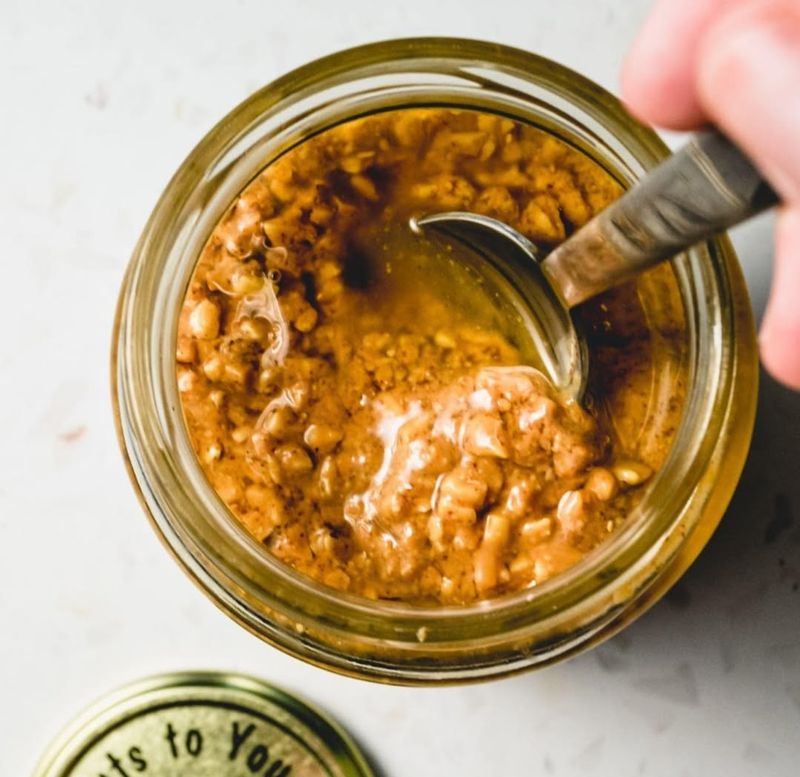
If leftovers linger at room temperature, bacteria flourish. Proper refrigeration is key to ensuring safety.
Where one might neglect timing, vigilance is crucial. Refrigerating promptly within two hours prevents bacterial growth, safeguarding health.
13. Street Vendor Hot Dogs

Though street hot dogs might tantalize with aroma, they often lack stringent safety controls. If you’re eager to indulge, consider the risks of improper storage and contamination.
Where safety is uncertain, experts opt for more controlled environments. How can one enjoy street food without concern? They suggest choosing vendors with visible, stringent hygiene practices.
14. Bagged Lettuce
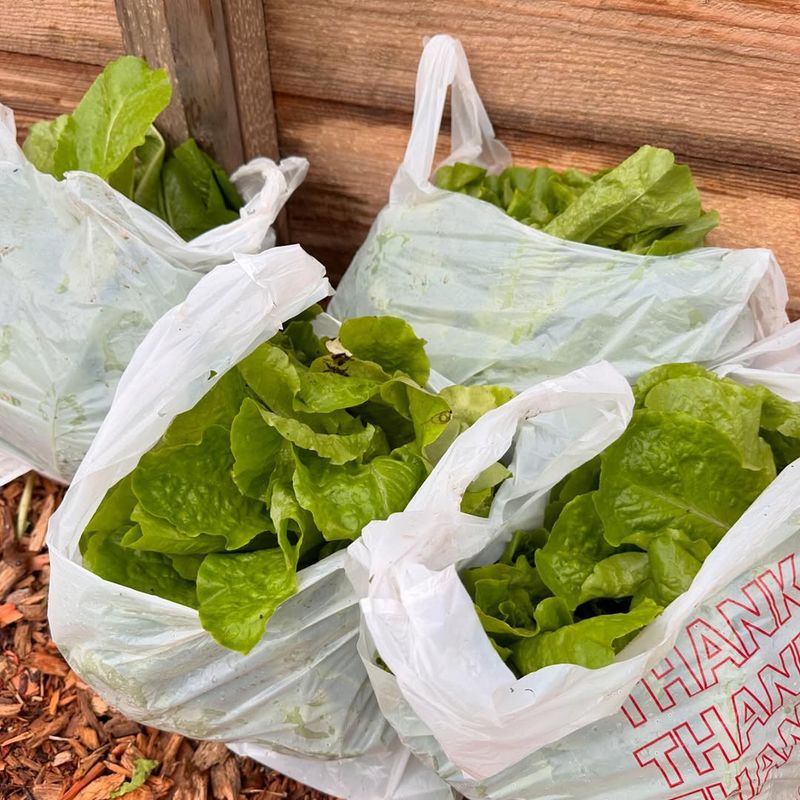
Bagged lettuce may offer convenience, but contamination risks loom large. If bags aren’t stored correctly, bacteria can thrive.
Though labeled pre-washed, washing again at home ensures additional safety. Food safety experts often buy whole heads, washing them thoroughly.
15. Fresh Tuna

Fresh tuna carries risks of mercury and parasites. Though savory, it requires careful handling and thorough cooking to ensure safety.
How can one enjoy it without the risks? Experts recommend moderation and sourcing from reputable suppliers.
16. Non-Pasteurized Cheese

Cheese lovers might crave non-pasteurized varieties, yet risks of listeria exist. Though aged cheeses are safer, concerns remain.
If you’re drawn to creamy textures, consider pasteurized options for peace of mind. Why risk listeria when safer options abound? Hence, pasteurized cheese remains the expert choice.
17. Raw Almonds
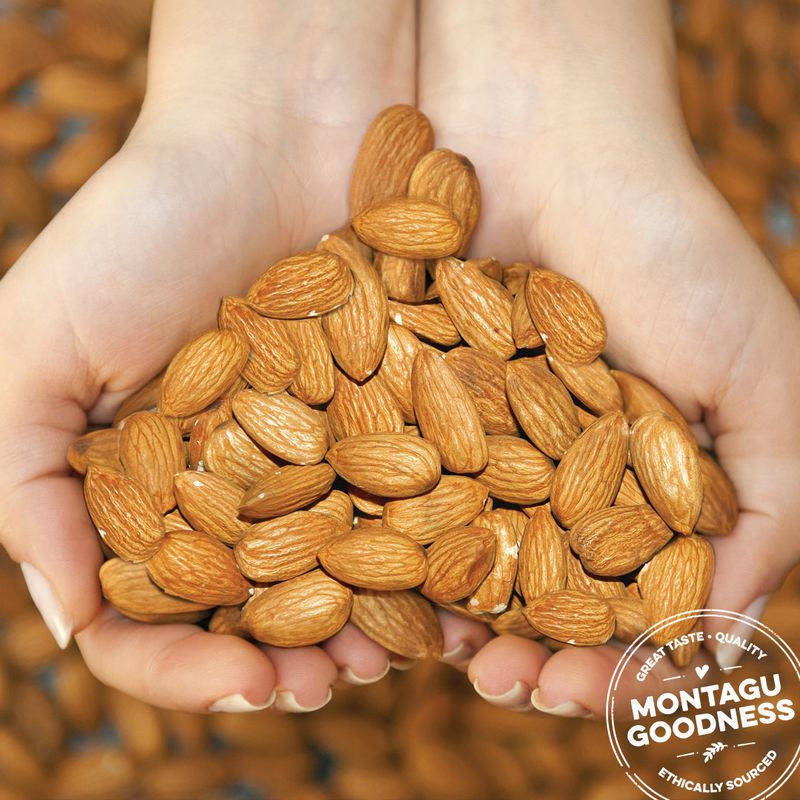
Raw almonds might seem nutritious, yet they harbor risks of salmonella. If safety is a priority, pasteurized or roasted almonds become preferable.
How does one balance health with risk? Experts choose processed over raw, ensuring safety without sacrificing nutrition. They often avoid raw options.
18. Organ Meats
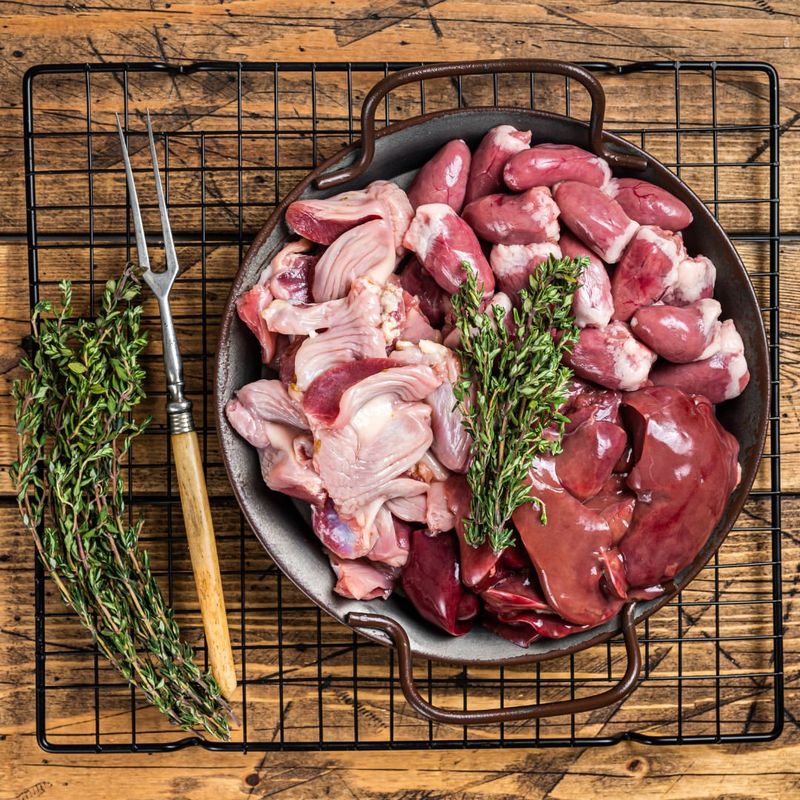
Organ meats might allure with unique flavors, yet risks of toxins and pathogens exist. If you’re inclined to try, thorough cooking becomes essential.
Though such meats offer distinct tastes, experts recommend caution due to potential health threats. They often limit consumption, prioritizing safer meat choices.
19. Raw Flour

Though raw flour seems innocuous, it can harbor E. coli. If you’re tempted to taste cookie dough, reconsider.
Cooking neutralizes such risks, ensuring flour-based treats are safe to enjoy. How can one relish baked goods without concern? Experts stress baking thoroughly, avoiding raw consumption.
20. Smoked Fish

It might tempt with rich flavors, yet risks of listeria persist. If you’re drawn to its smoky appeal, ensure proper storage and handling.
Though cold smoking preserves taste, hot smoking ensures safety. Where enjoyment meets caution, experts often opt for cooked fish.
21. Imported Produce
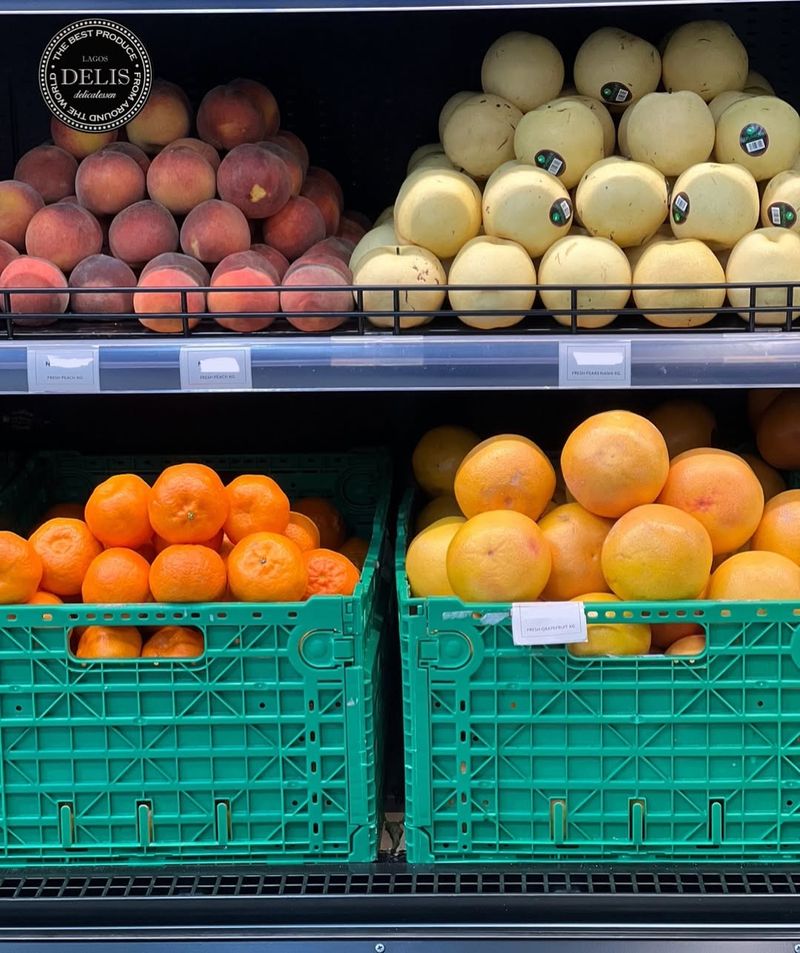
They offer diversity, yet concerns about pesticide residues and contamination arise. If you’re eager to explore exotic flavors, thorough washing and peeling become essentials.
How does one embrace variety while ensuring safety? Experts advise buying local when possible, supporting controlled farming practices.
22. Bottled Unfiltered Water

Unfiltered bottled water may seem pristine, yet hidden risks exist. Though marketed as pure, contaminants can lurk.
If clarity is vital, opting for filtered or treated water ensures peace of mind. Experts advocate for known, trusted sources, where safety is guaranteed.
23. Sushi With Raw Fish

Sushi enthusiasts might crave raw fish, yet risks of parasites and bacteria exist. Though fresh appeal is undeniable, experts recommend caution, prioritizing safety.
How can one enjoy sushi without fretting? Choosing establishments with rigorous quality checks ensures both flavor and peace of mind.
24. Bottled Salad Dressings
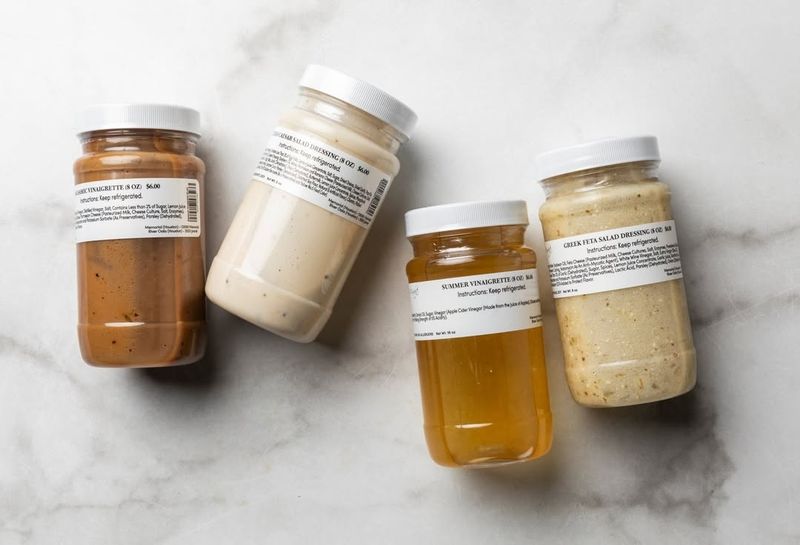
Bottled dressings offer convenience, yet hidden additives and preservatives can deter. If you’re health-conscious, homemade versions provide control over ingredients.
Experts often advocate for homemade dressings, ensuring freshness without unwanted extras. Though bottled options appeal, where health meets taste, homemade emerges victorious.
25. Raw Cookie Dough
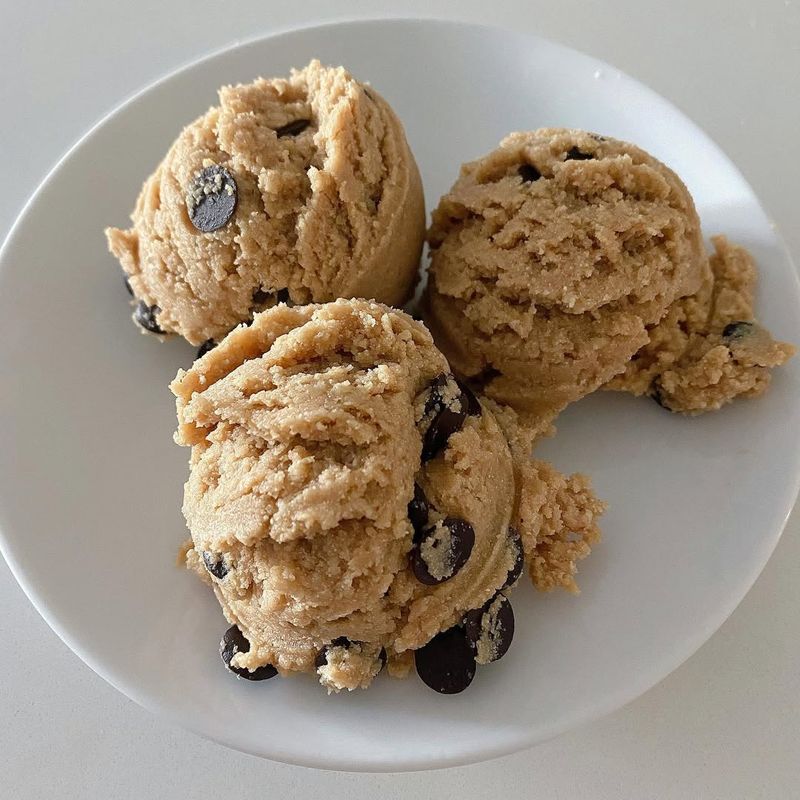
Risks of salmonella and E. coli are real. Consider waiting until baking neutralizes these threats.
How can one satisfy cravings without worry? Experts recommend enjoying cookies post-bake, ensuring both taste and safety. Where caution prevails, cooking becomes key.

